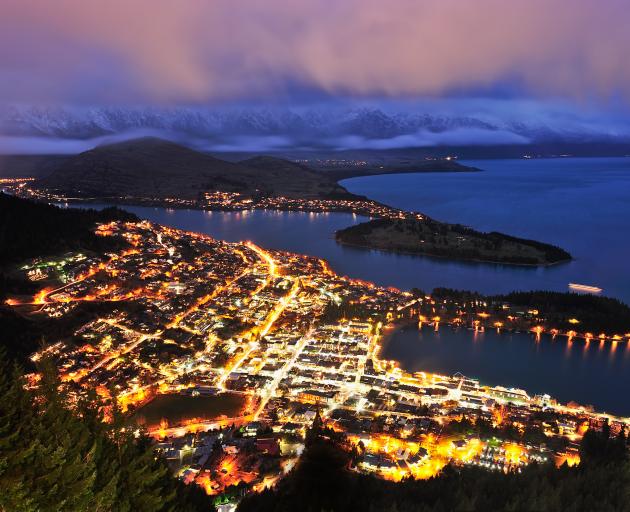
Infometrics yesterday released the report, commissioned by Airbnb, outlining the results of an "econometric analysis" in Queenstown Lakes District and Auckland, Wellington and Christchurch.
Overall, the report found the short-term rental accommodation sector — as of yesterday, Airbnb boasted 3100 holiday rentals in Queenstown — had a "limited effect" on rental prices and "no significant effect" on house prices across those areas.
Instead, the Infometrics report found population growth and interest rates were found to have the greatest influence.
Infometrics chief executive and principal economist Brad Olsen said Queenstown Lakes District analysis found the short-term accommodation "contributes negligibly" to monthly rental price increases — the average amount was 35c per month.

"Surely this is a Tui ad."
While Ms Scott agreed the New Zealand housing market fundamentally suffered from a lack of supply, the issue in the district was driven by short-term accommodation.
The trust’s waiting list started to grow "dramatically" from about 2017 as short-term visitor accommodation platforms became prolific, resulting in a "massive reduction" in long-term rental properties in the district.
"The common feedback from those coming on to the waiting list was that their property was being turned into Airbnb, or the likes."
Ms Scott said rents dropped by about 30% when New Zealand’s borders closed in 2020 — that was "clearly due to those properties coming back into the long-term rental pool".
"And when the borders reopened, rents went back up as those properties returned to visitor accommodation."
"These findings simply do not align with what we have seen for the last seven or so years in Queenstown, and I’m very sceptical of [them]."
Last March, Arrowtown-based regional economist Benje Patterson said based on data from bonds lodged in the 12 months to November 2022, there were 100 fewer rentals available in the district. Another 30 disappeared from the rental housing pool that December.
Based on new homes consented, and factoring in population growth, Mr Patterson found during that year more than 1000 new homes were consented than needed, and over the preceding three years, 2157 houses were built over and above what population growth required.

"One part of me says there’s a little bit of witchcraft involved in this report," Mr Lewers said.
"The other part of me says, ‘OK, they’ve crunched some numbers, but have they interpreted the data correctly?"’
He questioned the model used.
The report found short-term accommodation listings did not influence house values, however, "as an explanation of house values, our model is not entirely satisfactory".
Mr Lewers noted Infometrics had used AirDNA for some of their data, which was "full of errors" as it related to the district, and the outdated 2018 census results for other aspects.
One statistic included in the report showed the Queenstown Lakes District had a short-term accommodation sector which rivalled Auckland, which has 33 times its population.
In 2022, the total "reservation nights" in short-term accommodation for the district was 534,000, almost matching Auckland.
"So this report is saying you guys have got the same ... reservations as Auckland ... you’re 33 times smaller ... but, hey, it doesn’t affect your residential housing population," Mr Lewers said.












